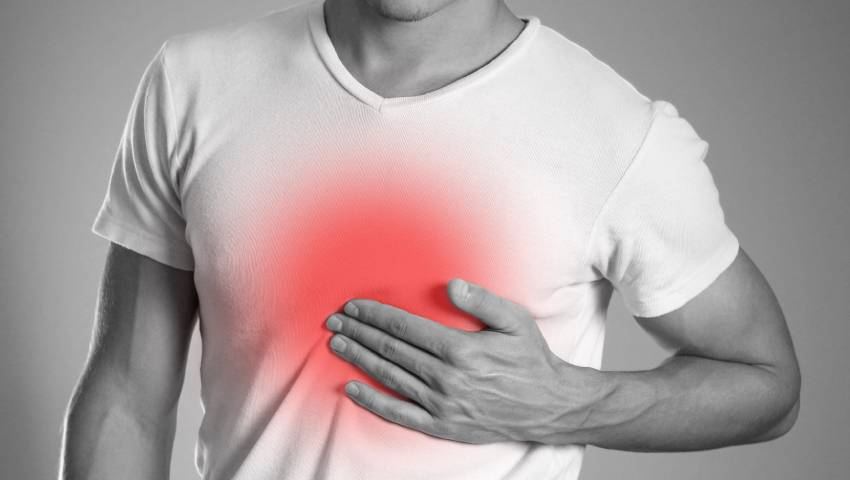
- 03/06/2024
- Dr. Samrat Jankar
- 0 Comments
- Blog
Is Heartburn a Sign of GERD? What You Need to Know
Heartburn is a common and often uncomfortable feeling experienced by many individuals. It’s that burning feeling in your chest, usually after eating, which might be mistaken for a heart attack due to its intensity. But is heartburn simply an occasional annoyance, or could it be a symptom of something more serious like Gastroesophageal Reflux Disease (GERD)? Dr. Samrat Jankar, a renowned expert in gastroenterology, helps us understand the connection between heartburn and GERD.
Dr. Samrat Jankar is a renowned GERD specialist in Pune with extensive experience in diagnosing and treating GERD. For more details or to schedule a consultation, visit Dr. Samrat Jankar’s Clinic.
What is Heartburn?
Heartburn arises when stomach acid backs up into the esophagus, the tube that carries meals from your mouth to your stomach. This can cause a burning sensation in the chest, often after eating or at night. Occasional heartburn is common and usually manageable with lifestyle modifications or over-the-counter medications.
What is GERD?
GERD is a chronic condition where stomach acid frequently flows back into the esophagus, causing irritation and inflammation. According to Dr. Jankar, GERD happens when the lower esophageal sphincter (LES) – a ring of muscle that acts as a valve between the esophagus and stomach – becomes weakened or relaxes inappropriately, allowing stomach acid to flow back into the esophagus.
This reflux of stomach acid can lead to signs such as:
- Persistent heartburn
- Regurgitation of food or sour liquid
- Difficulty swallowing
- Chest pain, especially while lying down
- A sense of a lump in your throat
When is Heartburn a Sign of GERD?
While occasional heartburn is common and usually not serious, experiencing heartburn more than twice a week might indicate GERD. The key differences between occasional heartburn and GERD include:
- Frequency: GERD is characterized by regular and persistent heartburn.
- Severity: The symptoms of GERD are typically more intense and can hamper daily activities.
- Duration: Heartburn associated with GERD lasts longer and is more difficult to relieve with over-the-counter medications.
Risk Factors and Causes of GERD:
Several factors can improve the risk of developing GERD:
- Diet: Consuming fatty, spicy, or acidic foods, as well as caffeine and alcohol, can trigger reflux.
- Obesity: Excess weight can put pressure on the abdomen, pushing stomach acid up into the esophagus.
- Smoking: Smoking can weaken the lower esophageal sphincter, allowing acid to flow back into the esophagus.
- Pregnancy: Hormonal differences and increased abdominal pressure during pregnancy can lead to GERD.
- Hiatal Hernia: This condition, where a portion of the stomach moves through the diaphragm into the chest cavity, can contribute to GERD.
Diagnosis:
Diagnosing GERD typically involves a review of your symptoms and medical history. In some cases, additional tests may be required, such as:
- Endoscopy: A flexible tube with a camera is used to examine your esophagus and stomach.
- pH monitoring: A test that measures acid levels in the esophagus.
- Manometry: This test measures the rhythmic muscle contractions in your esophagus when you ingest.
Treatment Options:
- Lifestyle Modifications:
- Eat smaller, more frequent meals.
- Avoid lying down immediately after eating.
- Elevate the head of your bed.
- Maintain a healthy weight to ease pressure on the abdomen.
- Avoid trigger foods like spicy dishes, chocolate, caffeine, and alcohol.
- Medications:
- Antacids can provide quick relief.
- H2 blockers and proton pump inhibitors (PPIs) lower stomach acid production and are available over the counter or by prescription.
- Surgery: In severe cases or when lifestyle modifications and medications are not effective, surgical options may be considered. Techniques like fundoplication can strengthen the LES and prevent acid reflux.
When to See a Doctor?
If you experience heartburn more than twice a week, or if over-the-counter medicines do not provide relief, it may be time to consult a doctor. Dr. Samrat Jankar emphasizes that untreated GERD can lead to more serious health issues, such as esophagitis (inflammation of the esophagus), esophageal strictures, or Barrett’s esophagus, a precancerous condition.
Conclusion:
While occasional heartburn is common, frequent and severe heartburn could be a symptom of GERD. Understanding the difference and seeking proper medical advice is crucial. Dr. Samrat Jankar advises that with proper diagnosis and treatment, most people with GERD can manage their symptoms and lead a normal, healthy life.
If you’re experiencing persistent heartburn, don’t ignore it—consult with Dr. Samrat Jankar, the best GERD surgeon in Pune to ensure your digestive health is on the right track.
For personalized advice and treatment options, consult with a gastroenterologist like Dr. Samrat Jankar, who can guide you on the best path to relief and recovery.
